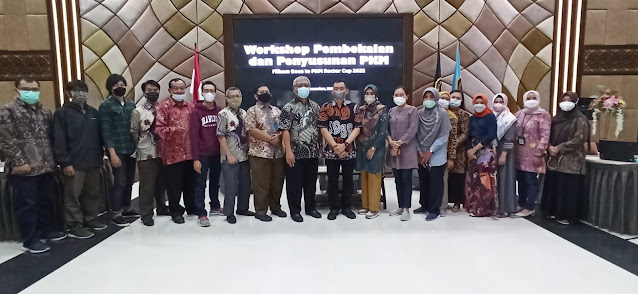Shaping the Students to be Problem Solver
A Story about Bapak Bayu Rahayudi, Senior Lecturer at Universitas Brawijaya
Bangkit 2022 Contributor
“Tell me, and I forget. Teach me, and I remember. Involve me, and I will learn.”
Benjamin Franklin
Taking part in capstone projects and guiding the students to execute the plan are two things that excited Pak Bayu Rahayudi, M.T., M.M. (48) the most when he contributed to Bangkit. In Bangkit 2021, Pak Bayu carried out his Machine Learning (ML) Instructor duties. This year, he is serving as Capstone Projects Mentor. What has moved him to return to Bangkit?
Seeing an Added Value of Capstone Project
Amid his tight schedule, Pak Bayu decided to recontribute to Bangkit. Although he is no longer an instructor, this year, he is trying his best to dedicate his time to guiding the capstone project groups as a mentor later.
“It’s always exciting for me to guide the students in solving real problems, especially cross-cutting problems. Because in my opinion, technology is just a tool to solve problems. The real challenge for students is when they can solve problems in various fields by utilizing technology. I love guiding them to do that.”In Pak Bayu’s eyes, the capstone project is something exceptional owned only by Bangkit. The execution of this assignment has the potential to be a perfect learning process. Plus, the collaboration between students from various universities makes this activity more valuable than regular lectures.
“The Merge of 3 Learning Paths Forms a Complete System”
For Pak Bayu, there are many advice advantages of the Bangkit capstone project for students. First, it serves as the opportunity for students to build connections; second, the project presents real cases for students to solve. As a lecturer, he realizes that traditional lecturing lacks the element of students' collaboration from various fields. Therefore, Pak Bayu tried to adopt the system used in capstone projects in his teaching process. Moreover, he applied this system to a group of students who participated in PKM (Program Kreativitas Mahasiswa), a competition for students to create a program that hones their creativity. As their mentor, Pak Bayu involved students from various disciplines in the group.“In the eyes of today's computer science, the merging of 3 learning paths―Machine Learning (ML), Cloud Computing (CC), and Mobile Development (MD)―that Bangkit does is something brilliant. These three paths can form a complete system if students want to create an innovative breakthrough.”Pak Bayu is always happy to help and guide students, who are often confused, to combine ML, CC and MD. He saw that many of his students needed to be directed to align these three systems. This is where Pak Bayu feels that he has to play a significant role. This former ML Instructor is always enthusiastic when he is assigned to help students solve real cases.
A Synergy between Educational Institution and Industry
Pak Bayu also thinks that students should do more practice apart from studying theory. Practical activities can be used by students to implement their knowledge. Students must be able to test the system for the small data and the big data.
As a lecturer who supports the educational revolution, Pak Bayu strongly encourages his students to participate in the Kampus Merdeka program, especially Bangkit. This is because Bangkit has provided various challenging projects that can hone students' problem-solving skills. Therefore, Pak Bayu hopes that Bangkit 2022 cohorts can make the most of this learning opportunity because many industry practitioners are also involved.
“In addition, I see excellent synergy opportunities between educational institutions and industries in Bangkit. Industry can help us train the students with real cases, while we can help industry with theory refinement.”That’s why Pak Bayu urges education, technology, and industry experts to contribute to Bangkit. Together, they can create a synergy in creating distinctive and contributive future tech talents.






Comments
Post a Comment